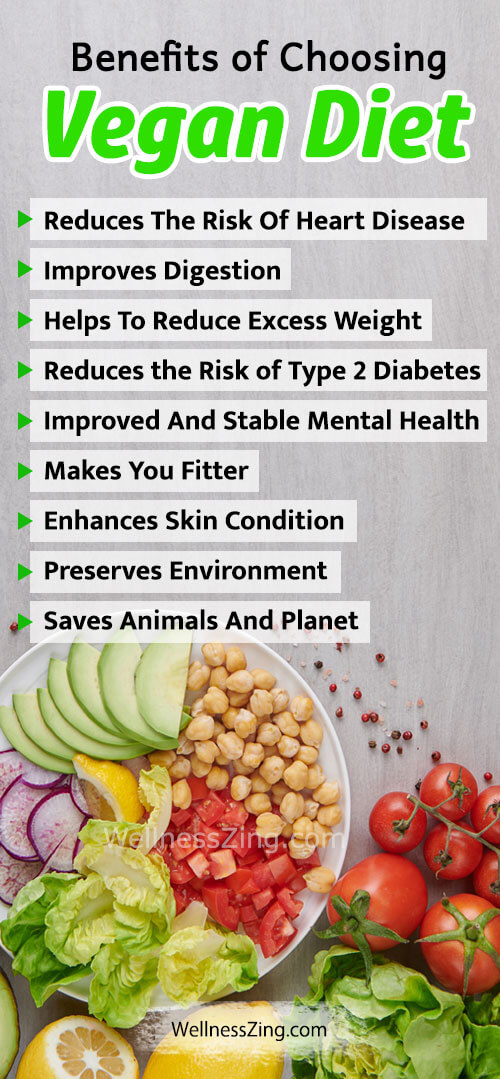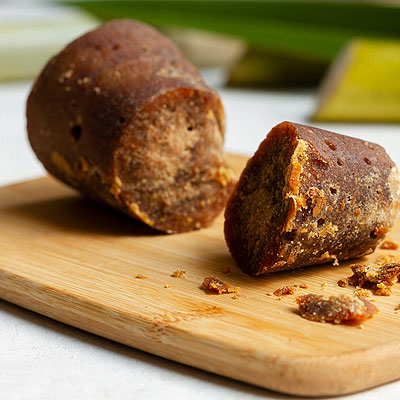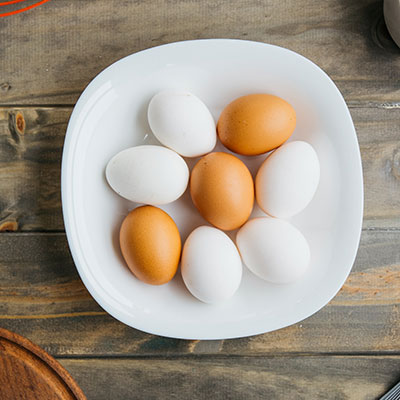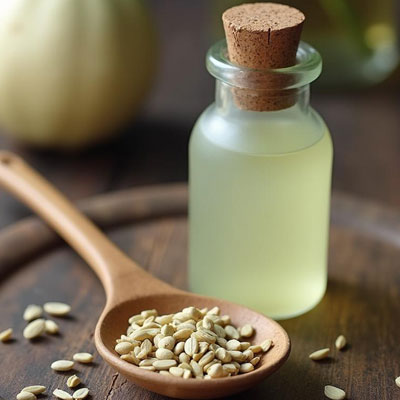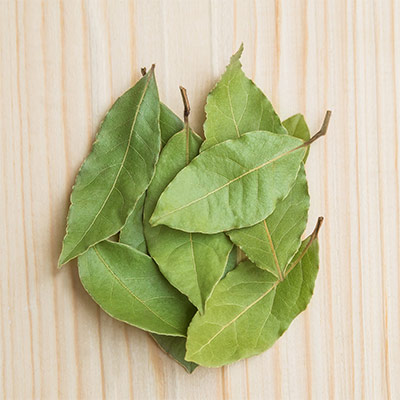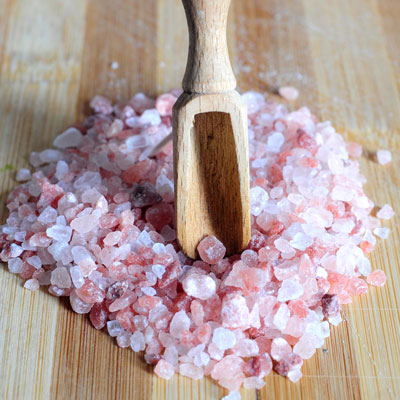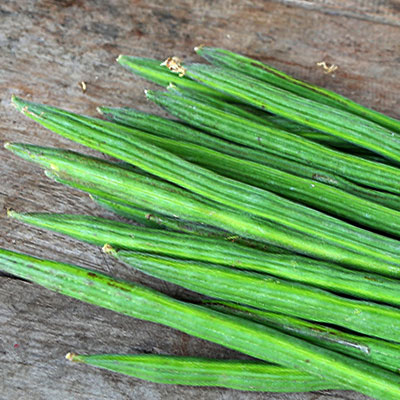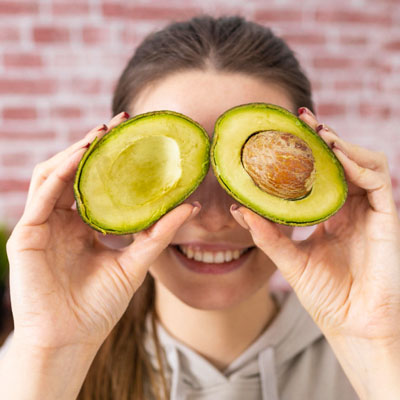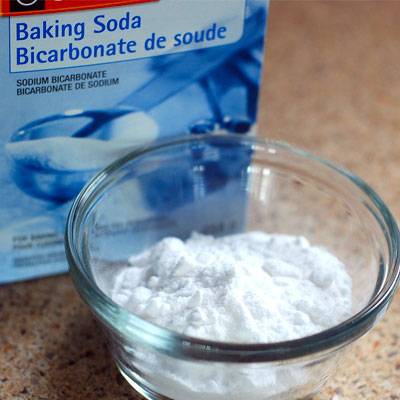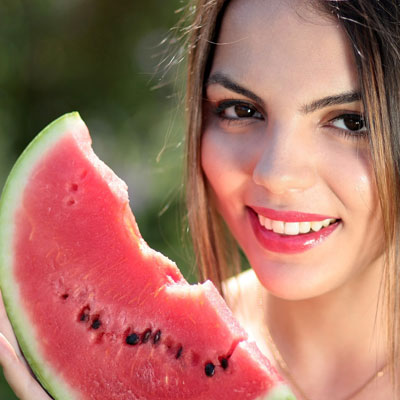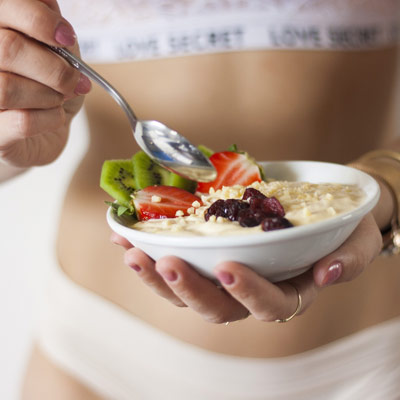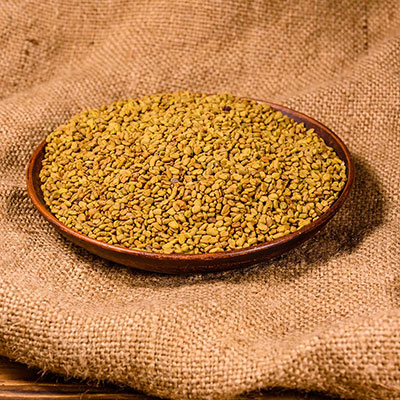A vegan diet is a plant-based diet. It aims at including nutrition from plant foods that improve your health. This diet is planned by including several health-promoting foods such as whole grains, nuts, fruit, vegetables, and seeds. These foods offer the right amounts of beneficial minerals, vitamins, protein, carbs, and fiber that your body needs daily. When followed in as per healthy eating practices, this diet fulfills the nutritional needs of all age groups.
Vegan diets have purported benefits in terms of reducing high cholesterol and high blood pressure levels. Going vegan is beneficial for people who suffer from Type 2 diabetes, heart ailment, and certain forms of cancer too. In this article, you will learn why a vegan diet is the best for the survival of human beings and the ways to implement it.
Why It Makes Sense To Go Vegan and Choose Vegan Diet?
1. Reduces The Chances Of Heart Disease
Meat and dairy items are believed to raise cholesterol levels in the body. The high cholesterol levels cause the arteries to block and enhance the risk of heart diseases. This diet eliminates animal-based foods.
In a vegan diet, you include more antioxidants, and anti-inflammatory foods that fight away inflammation and reduce oxidative stress. In this way, the risk of heart diseases, diabetes, obesity etc. reduced considerably.
2. Improves Digestion
A vegan diet is made from foods that have a high amount of fiber-rich foods that enhance digestion in the body. These foods increase the level and types of healthy bacteria in the intestine. The growth of these bacteria makes the digestion faster and more efficient. Fiber helps in normalizing bowel movements and prevents digestion disorders such as bloating, and constipation.
3. Helps To Reduce Excess Weight
A vegan diet emphasizes eating clean and healthy. It does not include red meat and processed foods that have a high amount of fat and calories in it. People who live a sedentary life, are not able to burn those calories. This, in turn, leads to the deposition of fat and excess body weight.
Along with it, the vegan diet includes high fiber sources that digest slowly in the body and keeps you fuller for a long time. When you eat less, you take in fewer calories in the body. You do not need to spend hours exerting in the gym to burn excess calories.
4. Reduces the possibilities of Type 2 Diabetes
A vegan diet increases the rate of metabolism in the body. It improves sensitivity towards insulin hormone that helps reduce Type 2 diabetes. The reason for this benefit is due to the elimination of animal protein, refined foods, sugary foods, high sodium foods and cold foods from the diet.
5. Improved And Stable Mental Health
What you eat, not just affect your body, but also your mind. Your diet has an impact on the type of emotions and thoughts you get during the day. Processed foods, and animal foods cause agitation, and restlessness in your mind and body. These foods make you easily triggered by any stimuli. Such people are susceptible to mental disorders.
On the other hand, people who consume plant foods are seen to have a calmer, and peaceful state of mind. They enjoy a stable and happy mindset. A vegan diet includes healthy fats and nutrition that nourishes your brain and promotes mental health.
6. Makes You Fitter
Many believe animal protein to be a prerequisite to get a muscular, and fitter body. This is not true. There are many examples of successful sportsmen and athletes who are completely vegan. A plant-based diet also provides you essential amino acids and other beneficial nutrients that can meet the protein requirements of the body. This diet includes whole grains, seeds, nuts, that are loaded with healthy fiber, high-quality protein, healthy fats, minerals, and vitamins that give you a fit body without any side-effects.
7. Enhances Skin Condition
Poor lifestyle and no physical activity lead to inferior digestion and assimilation of food. It prevents the cells from getting adequate nutrition and causes hormonal imbalance in the body. Dairy foods, red meat, processed foods, poultry, etc. have high amounts of synthetic additives that cause premature aging.
It shows up in the form of blemishes, acne, fine lines, dark spots, etc. A vegan diet includes natural and healthy foods that speed up metabolism, enhances digestion, and raises energy levels in the body.
8. Preserves Environment
Animal agriculture is the major reason for the production of greenhouse gases; destruction of various species of forest, and animals; air pollution; water pollution; loss of habitation; and degradation of land. By abstaining from meat and animal products, we are reducing their need in the market. This, in turn, helps to create a conducive environment for living beings.
9. Saves Animals And Planet
By refraining from animals and animal foods, you are in a way preventing forceful breeding and animal slaughter practices. It saves their life and shows empathy towards living beings. Going vegan is a way to show your kindness to animals.
List Of Foods You Can Eat In Vegan Diet
A Vegan diet includes only plant-based foods that provide the daily dietary nutrition needs of a person. It is composed of protein-dense foods that enhance muscle density, and achieve sustained weight loss. Based on your nutritional needs, you can plan a well-balanced vegan diet.
1. Tofu
Tofu is another healthy food that you can incorporate into your diet.
Nutritional Composition
- One cup of tofu provides 20 grams of protein
- This soy product provides good amounts of vitamins, healthy fats and minerals to the body.
- It also contains polyphenols (antioxidants), phytic acid, saponins, and phytoestrogens, which strengthens the immunity system, and fights away inflammation.
Ways To Consume
Tofu is a wonderful addition to your sandwiches, and salads.
2. Nuts and Seeds
Nuts and seeds are an important inclusion in the diet. They exhibit remarkable anti-inflammatory and antioxidant attributes to keep you fit and healthy. You can consume different types of nuts such as almonds, cashews, walnuts, peanuts, and pistachios and seeds such as pumpkin seeds, chia seeds, melon seeds, hemp seeds, sunflower seeds, and flax seeds.
Nutritional Composition
- One tablespoon of nuts and seeds provides you anywhere between two to five grams of protein
- They are a rich source of healthy fats, such as Omega 3 fatty acids and monounsaturated fatty acids.
- Nuts and seeds also contain, phytochemicals, and dietary fiber that balances blood sugar levels, and weight in the body.
- Nuts are also packed with essential minerals such as zinc, selenium, iron, and calcium.
Ways To Consume
You can enjoy nuts, and seeds by adding them in smoothies, shakes, breakfast cereals, milk, sweets, and more.
3. Lentils
Lentils are the major food in this diet. It shows antitumor and antioxidant properties that prevent inflammation and a few types of cancer in the body. Types of lentils that you can include in your vegan diet are pink lentils, mung beans, split and whole black gram lentils, split chickpeas, and split pigeon peas.
Nutritional composition
- One cup of lentils provides eighteen grams of high-quality protein.
- It is also a good source of dietary fiber, minerals such as folate, potassium, calcium, and zinc. Lentils have essential vitamins that include A, B3, C, and K.
Ways To Consume
Lentils are best eaten in the form of soups with your choice of veggies. Add different varieties of lentils to make to more nutritious.
4. Beans
Beans are an important addition in a vegan diet. They are available in various types such as black beans, chickpeas, kidney beans, white beans, sprouting beans, black-eyed peas, and soybeans. They have a low Glycemic index that when consumed do not cause a sudden rise in blood sugar levels in the body.
Beans help drop tummy fat and low-density cholesterol. People who have diabetes, and/or suffer from heart ailments, and obesity can benefit by making it a part of their regular diet.
Nutritional Composition
- One cup of beans provides approx. eight grams of protein
- They are loaded with vitamin C, omega-3 fatty acids vitamin B9 or folate, potassium, calcium, iron, magnesium and phosphorus.
Ways To Consume
You can enjoy them in the form of salads, soups, and brown rice.
5. Barley
Barley is a cereal grain that aids in reducing blood sugar levels in the body. It helps to lower the risk related to Type 2 diabetes. Due to its high anti-inflammatory action, regular intake of this grain reduces inflammation, prevents certain types of cancer, regularizes bowel movement, strengthens immunity, and boosts energy levels in the body.
Nutritional Composition
One cup of barley provides four grams of protein.
It has high amounts of vitamins A, B2 (riboflavin), B3 (Folate), K, and organic water-soluble compound, choline. This grain also contains vital minerals that include selenium, calcium, phosphorus, magnesium, zinc, and potassium.
Ways to Consume
Relish it with rice, or add it to your salads, and soups.
6. Quinoa
Quinoa is a gluten-free grain that you can consume in your vegan diet. This pseudo-cereal has edible seeds that are a powerhouse of nutrition. Quinoa is a whole-grain protein, and whole-carbohydrate food.
Nutritional composition
- Every 100 gram of quinoa contains four grams of protein
- The tiny seeds of this grain are packed with the goodness of several types of vitamins, and minerals.
- It is a low carb and low-calorie food that provides a good amount of dietary fiber.
- This food contains two beneficial amino acids that include threonine, and leucine.
Ways To Consume
Enjoy cooked quinoa by adding it in other vegetables of your choice. It is a good substitute for rice too.
7. Oats
This is another healthful food on a vegan diet. Oats is a cereal grain that is ideal for people who aim to build bulkier, and bigger muscles. It is an anti-inflammatory food that prevents ailment caused due to inflammation in the body. Regular consumption of oats regulates sugar levels in the blood, and helps in weight loss.
Nutritional Composition
- Oats are a dense source of omega-3 fatty acids and proteins. 100 gram of oats provides seventeen grams of protein.
- This superfood is a good source of Vitamin B3, and minerals such as iron, zinc, magnesium, calcium, and phosphorus.
- It has high amounts of dietary fiber that makes it a fulfilling meal.
Ways to Consume
Some of the best ways to include it in the form of breakfast cereal, instant oats, rolled oats, and by adding it in smoothies and other dishes to increase its nutritional level.
Other foods that you can include in a Vegan diet are fruits, vegetables, nut butter, coconut milk, almond milk, soymilk, brown rice, and more.
Foods To Avoid In Vegan Diet
A vegan should avoid all those foods that are derived from animals. These foods include:
- all types of red meat such as pork, lamb, beef, etc.
- chicken, eggs, mutton, and seafood
- dairy foods such as milk, cream, curd, cheese, and butter.
- honey
- mayonnaise as it contains egg yolk
Ways To Implement A Vegan Diet
If you have been habitual of consuming animal-based foods, then you may find it a little difficult to adopt a vegan diet. This change in diet can be a life-changing decision for you but it will assure you of rewarding returns in the present and the future. To make the smooth transition from your regular diet to a vegan diet, we have come up with a few simple ways.
1. Take Small And Steady Steps
A vegan diet is not easier for non-vegetarian people. Instead of forcing yourself completely to a new diet, take small steps. Replace non-vegan products by vegan food sources one by one. Start by replacing eggs, or dairy products and slowly progress to replacing your non-vegan meals each day. Know that it will take time to become a vegan. Have patience and be consistent towards your goal.
2. Increase Your Awareness
Become more aware of veganism. Learn more about this new diet, food sources, nutritional content, cooking methods, vegan recipes, and more. Reading books and vegan articles about this diet will keep you motivated. Find out what vegan foods can you eat in the restaurants so that you follow the diet wherever you go.
3. Learn About The Vegan Food Substitutes
Make a list of all vegan foods that you can use as a substitute for regular foods. Choose almond milk over regular milk, crispy tofu over regular cheese, mock meat over red meat, olive oil over refined oils, barley and quinoa over refined flour, nuts over unhealthy snacks and more. When you find that vegan foods are not just healthy but also delicious, you will very easily adapt to the new diet.
4. Fill Your Kitchen With Only Plant-Based Foods And Products
Going vegan is good for animals, human beings and nature. Once you have taken this healthy decision, the next step is to ditch all animal-based foods, and products that you have been using so far. It is the time to do a complete make-over of your kitchen. Replace all animal-based stuff by healthy plant foods. This will also eliminate any possibility of returning to old eating ways.
5. Design A Well-Planned Vegan Diet
Now that you have all the vegan foods available, you now have to design a well-balanced vegan diet. Look at your daily requirement of nutrition and include foods in the right amounts to meet your requirement. You can take the help of a nutritionist to assist in planning the right vegan meal for you. Also, there are several free aids available online that will help you to calculate your daily nutritional needs based on your age, lifestyle, gender and more.
6. Motivate Yourself
During the early days of adopting the diet, you may sometimes feel of returning to your normal diet. In that case, you need to remember what made you decide to become a vegan. By implementing this diet, you are saving the lives of a billion animals, and protecting the environment. You are not just saving the lives of innocent animals, but also making the world a better place to live. Keep reminding yourself again and again till the new diet gets completely ingrained into your lifestyle.
Conclusion
A Vegan diet is a good way to incorporate healthy modifications in the diet. Not just it benefits the person who consumes it, but also saves the planet. Once you make the diet a part of your lifestyle, you will begin to see gradual improvements in your health.
You would not want to return to your old lifestyle and eating habits. You will realize that your step to becoming a vegan is one of the best decisions in life. With this realization, you should not delay adopting this diet and lead a healthy life.

